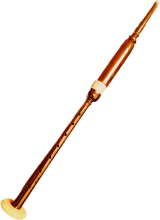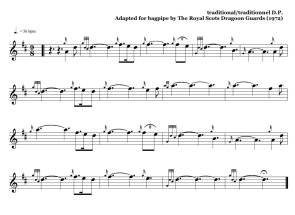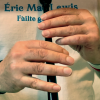© ericdentinger.com
2008-2026
Eric Maclewis - BAGPIPE SOUNDS
Eric Maclewis
AMAZING GRACE
Faith's Review And Expectation
(John Newton)
Amazing grace how sweet the sound
That saved a wretch like me
I once was lost but now am found
Was blind but now I see
'Twas grace that taught my heart to fear
And grace my fears relieved
How precious did that grace appear
The hour I first believed
Through many dangers, toils and snares
I have already come
It is grace that brought me safe thus far
And grace will lead me home
The Lord has promised good to me
His word my hope secures
He will my shield and portion be
As long as life endures
Yes when this flesh and heart shall fail
And mortal life shall cease
I shall possess within the veil
A life of joy and peace
The earth shall soon dissolve like snow
The sun forbear to shine
But God who called me here below
Will be for ever mine
1. wikipedia (en français)
2. wikipedia (en anglais)
3. informations historiques (en anglais)
Les paroles rédigées en 1772 sont de John Newton (1725-1807), publiées par Newton et William Cowper en 1779 (collection des Olney Hymns) sous le titre Faith's Review And Expectation.
La chanson passa par la suite à la postérité avec les deux premiers mots qui débutent ce texte : "Amazing Grace"…
John Newton, anglais de naissance, fut tout d'abord enrôlé à bord d'un vaisseau de la Royal Navy puis après diverses pérégrinations (dont un mémorable séjour en Afrique au cours duquel il fut lui-même esclave d'une princesse africaine…) participa ensuite sous d'autres pavillons à la traite des esclaves.
En 1748, il survécut à une forte tempête en plein Atlantique, au large de Donegal, et y vit un signe de la volonté divine. Il renonça au trafic d'esclaves, se maria puis devint pasteur en 1764; il fut par la suite un ardent promoteur de la cause abolitionniste.
Si on n'a pas conservé trace d'une éventuelle mélodie qui aurait été employée lors de la première présentation publique de ce texte en 1773, de nombreux airs ont par la suite été utilisés de part et d'autre de l'Atlantique.
Ce n'est qu'en 1835 (ou encore 1847 pour la première édition dans le recueil de partitions « Southern Harmony »), sous l'impulsion de William Walker, que les paroles ont été accolées à l'air nommé New Britain : cette mélodie était elle-même inspirée par deux autres airs, Gallaher et St. Mary édités en 1829 par les américains Charles Spilman et Benjamin Shaw dans leur recueil Columbian Harmony.
Quant à l'origine de ces deux derniers airs, mystère... (musique des Appalaches ou autre).
La mélodie actuelle a été adaptée pour cornemuse par le pipe band du Royal Scots Dragoon Guards en 1972.
«… John Newton, Clerk, once an infidel and libertine, a servant of slaves in Africa, was, by the rich mercy of our Lord and Saviour Jesus Christ, preserved, restored, pardoned, and appointed to preach the faith he had long labored to destroy…» (épitaphe écrite par John Newton lui-même).
AU PRACTICE :
1- attention au départ : ne précipitez pas la première noire mais posez un solide A (SI bémol) avant d’enchaîner sur la croche
2- c’est un tempo lent donc attention à ne rien précipiter, en particulier si vous jouez en groupe : portez une attention particulière aux valeurs longues comme le High-A/SI bémol aigu tenu des mesures 8 et 9; évidemment si vous jouez en soliste, vous aurez un peu plus de liberté d’expression et vous pourrez vous autoriser quelques écarts de tempo… mais employez-vous quand même à rester fidèle à une certaine valeur de beat (je propose 56 mais prenez celle qui vous conviendra le mieux), car le bon résultat d’un jeu « rubato » n’est pas toujours garanti…
3- placement rythmique : les détachés bien sur le temps, de même que les doublés et les battements; le doublé de MI inférieur (D Throw) = la première note du doublé (G /LAb) un peu en avant du temps ou encore posée sur le temps.

- noté par Eric Maclewis sur CelticPipes
SLOW AIR

Envoyez-moi un email en indiquant le nombre 1748 soit en objet soit dans le corps du texte et je vous ferai parvenir un dossier sur cet Amazing Grace, incluant un morceau spécialement mixé !










